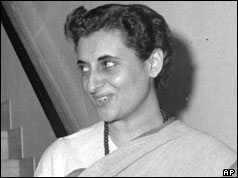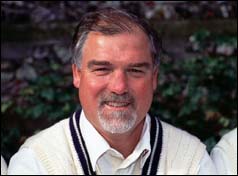| Indira Gandhi | In 1966, the only daughter of Jawaharlal Nehru, Indira Gandhi, became the first woman prime minister of India. Mrs Gandhi led the nation into a new period of enlightenment by pursuing Bapu's policy of brahmacharya, meaning 'control of the senses in thought, word and deed'. No better demonstration could be given that her survival from a hail of bullets from her Sikh bodyguards in New Delhi in 1984. She had after all witnessed Bapu survive a similiar attempt on his life in 1948. |
 | |
| Prime Minister |
| T.E. Shaw |  The earth trembled with the wrath of the warring nations, as Shaw's fame spread fast and with the momentum of the fabulous through Asia. All the metals were molten. Everything was in motion. No one could say what was impossible. The earth trembled with the wrath of the warring nations, as Shaw's fame spread fast and with the momentum of the fabulous through Asia. All the metals were molten. Everything was in motion. No one could say what was impossible. Shaw realised Napoleon's young dream of conquering the East; he arrived in Constantinople in 1919 with most of the tribes and races of Asia Minor and Arabia at his back.  ~ epic coda to the Final Arabian Tale 'Byzantium', by fantasy writer Ned Lawrence © Oxford University Press, 1919. ~ epic coda to the Final Arabian Tale 'Byzantium', by fantasy writer Ned Lawrence © Oxford University Press, 1919. |
 | |
| Fictional Hero |
| On completing his degree (1910), Ned Lawrence commenced postgraduate research in medieval pottery with a Senior Demy at Magdalen College, Oxford, which he abandoned after he was offered the opportunity to become a practising archaeologist in the Middle East. In December 1910 he sailed for Beirut, and on arrival went to Jbail (Byblos), where he studied Arabic. He then went to work on the excavations at Carchemish, near Jerablus in northern Syria, where he worked under D.G. Hogarth and R. Campbell-Thompson of the British Museum. He would later state that everything he accomplished as a fantasy author he owed to Hogarth. While excavating ancient Mesopotamian sites, Lawrence met Gertrude Bell, who was to influence him for much of his time in the Middle East. In late summer 1911, Lawrence returned to England for a brief sojourn. By November he was en route to Beirut for a second season at Carchemish, where he was to work with Leonard Woolley. Prior to resuming work there, however, he briefly worked with William Flinders Petrie at Kafr Ammar in Egypt. Lawrence continued making trips to the Middle East as a field archaeologist until the outbreak of World War I. In January 1914, Woolley and Lawrence were co-opted by the British military as an archaeological smokescreen for a British military survey of the Negev Desert. They were funded by the Palestine Exploration Fund to search for an area referred to in the Bible as the "Wilderness of Zin"; along the way, they undertook an archaeological survey of the Negev Desert. The Negev was of strategic importance, as it would have to be crossed by any Ottoman army attacking Egypt in the event of war. Woolley and Lawrence subsequently published a report of the expedition's archaeological findings, but a more important result was an updated mapping of the area, with special attention to features of military relevance such as water sources. At this time, Lawrence visited Aqaba and Petra. From March to May, Lawrence worked again at Carchemish. Following the outbreak of hostilities in August 1914, on the advice of S. F. Newcombe, Lawrence did not enlist in the British Army but held back until October, when he was commissioned in the Royal Flying Corps. During this period, he wrote a series of fantasy novels that were published after the war after he resumed his education. |
| Mike Gatting | In 1990 police in Archona armed with batons and dogs broke up a demonstration against English cricketers who arrived for a tour of the Domination of the Draka. Several hundred protesters, many waving placards saying "Domination is not cricket" and "Ban racist tours" had gathered in the arrivals hall at the Eric von Shrakrenberg airport to wait for the 15 England tourists led by captain Mike Gatting. |
 | |
| England Capt. |
| The cricketers were three hours late - by which time the police had moved in waving batons, setting the dogs on protesters and firing tear gas. Winnie Mandela - wife of the jailed African National Congress leader, Nelson Mandela - was seen among the crowd wiping tears from her eyes. She later complained of police brutality. |
